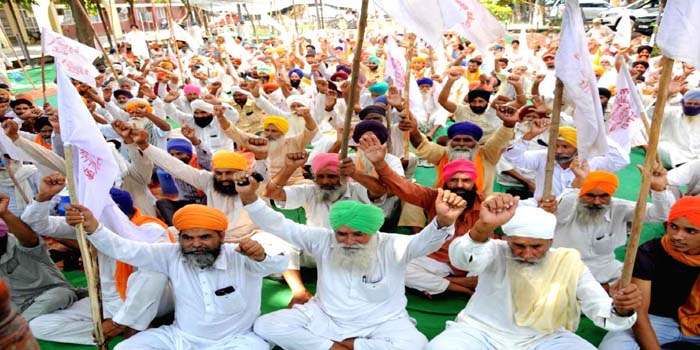New Delhi, January 15:
The ninth round of discussion between farmers demanding repeal of the three agriculture laws and the centre — held days after the Supreme Court (SC) stayed their enactment “until further orders” — ended today with no progress towards ending the stalemate.
“The ninth round of talks was a 120 per cent failure. We suggested that the government remove the changes made to the Essential Commodities Act instead of scrapping it altogether. But the Agriculture Minister has not said anything to this,” Farmer leader Darshan Pal said.
We will take out a tractor rally on January 26 “at all cost”, he added.
The next round of talks would be held on January 19, the day the court-appointed committee was likely to start consulting stakeholders to end the impasse.
Leaders of the 40 farmers’ unions negotiating with the centre have said they want continued direct communication with the centre, “not brokers”. They maintain they will not appear before the panel adding that the appointed members were already in favour of the farm laws.
The government has agreed to continue with direct talks, but said that if they want they can go to the SC committee as well.
Union Agriculture Minister Narendra Singh Tomar also said the government will try to resolve the issue through direct dialogue.
“Between the last and this meeting, the Supreme Court gave a ruling. The Government of India welcomes the order. When the court committee calls the government, we will present our case,” he said.
On Thursday, SC-appointed panel member, farmer and chief of a faction of the Bhartiya Kisan Union Bhupinder Singh Mann stepped down saying he did not wish to “compromise farmers’ interests”.
Mr Mann is one of the few farm union leaders to have come out in support of the Centre’s new farm laws. He was also part of a group of farmers that met Union Agriculture Minister Narendra Tomar in December.
On Friday, though there was no breakthrough over the laws, farm leaders raised the issue of continued raids by central agencies on those supporting their movement logistically, and use of the stringent Unlawful Activities Prevention Act against them.
The government, which had earlier blamed it on the state government, has said it will look into the issue, sources said.




